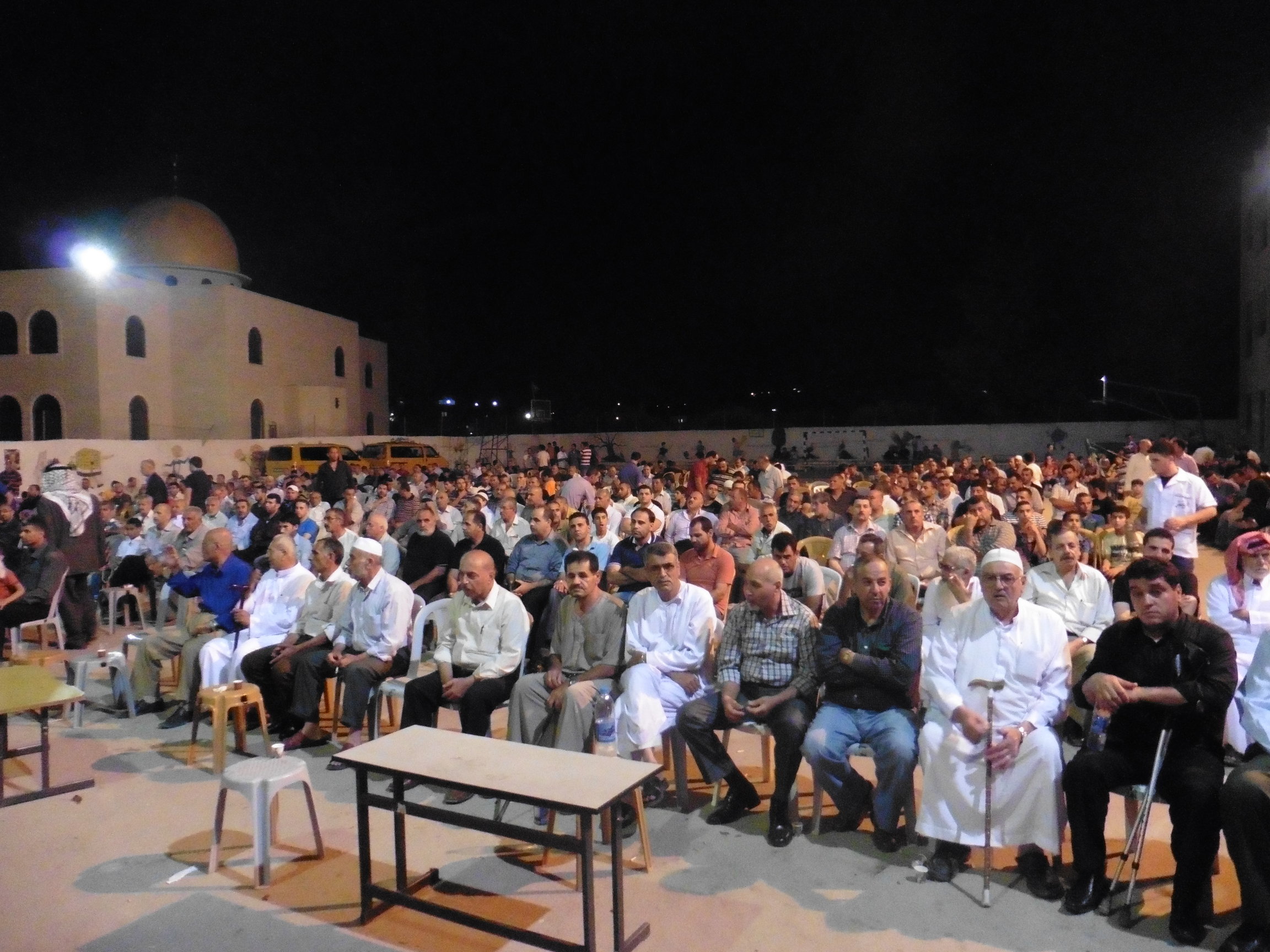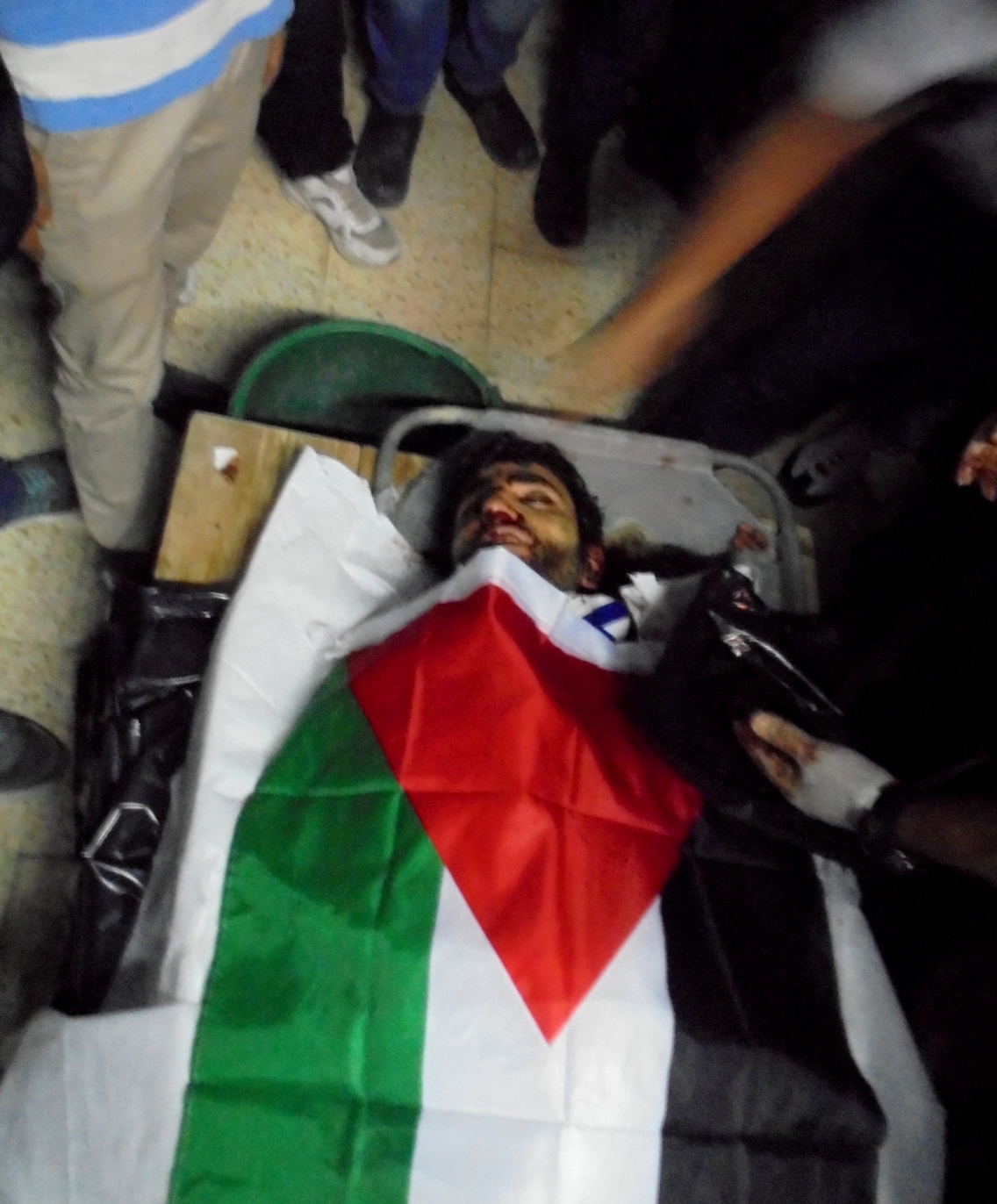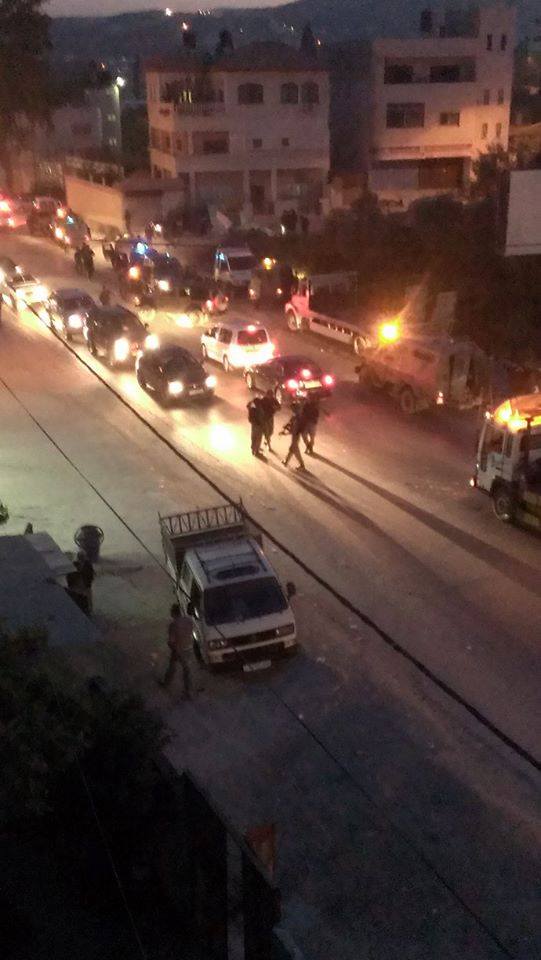Tag: Huwwara
-

Two Palestinian teenagers were murdered by an Israeli settler and an Israeli soldier in separate incidents in Huwwara
27th July 2014 | International Solidarity Movement, Nablus team | Huwwwara, Occupied Palestine On Friday, July 25, an Israeli settler murdered a Palestinian teenager in the village of Huwwara, which lies approximately 10 km south of Nablus in the northern half of the West Bank. Two hours later, an Israeli sniper killed another Palestinian teenager in the same…
-

Palestinian murdered by Israeli forces in Huwarra
4th June 2014 | International Solidarity Movement, Nablus team | Huwwara, Occupied Palestine In the late hours of Monday evening, Israeli forces executed 30-year-old, father of two, Alaa’ Mohammed ‘Awadh, at Za’tara checkpoint, in southern Nablus. The Israeli army claimed that a Palestinian gunman was shot dead after he injured an Israeli police officer in the leg. The villagers of…
-

One man shot and arrested by Israeli Border Police in Huwwara village
10th April 2014 | International Solidarity Movement, Nablus Team | Huwwara, Occupied Palestine On Sunday 6th of April, a 35-year-old Palestinian man was shot with live ammunition and then arrested by an Israeli Border Police Officer. This was after the man had thrown a Molotov cocktail against a passing military jeep on the main street of Huwwara,…
